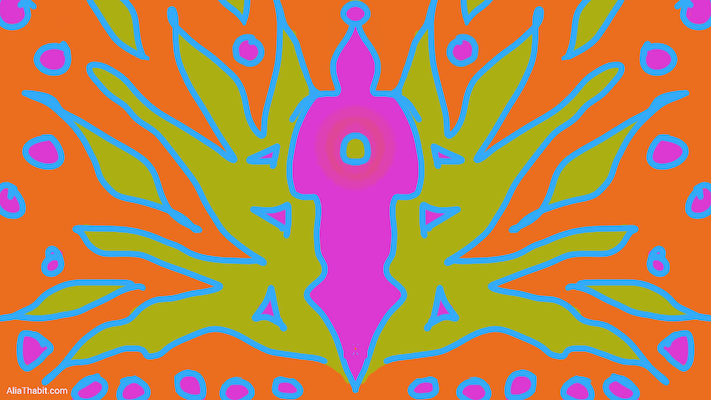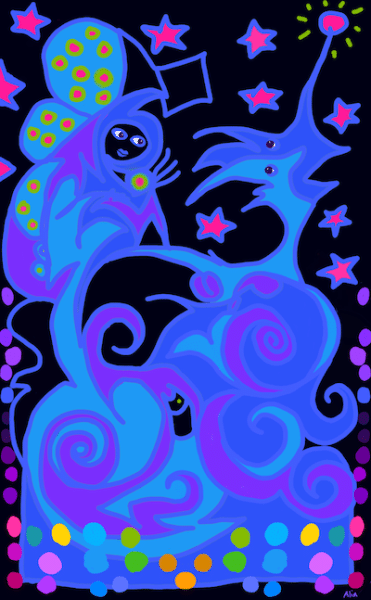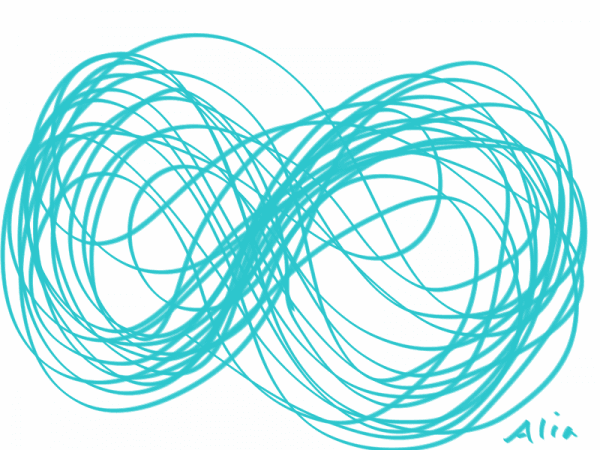One of those genre conventions in Oriental dance is the admonition that, “You can’t be sad on stage.” But can you? When? How?
Dancers use plenty of complex orchestral works and tarab songs (which didn’t used to be dance music). Many of them express shifting emotional states, not all of which are happy. Do we dance that?
Then we get yelled at for dancing happy to perky songs with sad lyrics. So… wth?
There are a few things going on here.
One is that it’s a good thing to understand the context of your music. Sometimes composers intentionally oppose the emotional content with the mood of the music itself. So some sad songs may sound happy and surely there are some happy songs that sound sad ; ). When we know what’s going on, we can play with these oppositions.
(Most of the time, you can feel the emotional context of a song without knowing the lyrics, but knowing is always good.)
And you definitely DO want to express the emotional nuances of the music, whatever they may happen to be. Even sad, nostalgic, yearning, and so forth.
What about anger?
There is not a lot of anger in Oriental dance music—it’s purpose is to bring joy and entrain meditative states—but it does come out in some folkloric music such as Turkish Roman, and in some post-revolution Egyptian sha’abi, and mahragan.
Mohamed Salah, a dancer in the Reda troupe who taught at the Belly Dance Blossom festival in Canada, talked about the anger and violence expressed in street dance in Cairo—oriental dance vocabulary used to express the frustration and anger the people felt after the collapse of the revolution. This is pretty radical, and demonstrates the vibrance and elasticity of Oriental dance. I am fascinated by this as a phenomenon. More about this in a bit…
But back to the sad thing…

The issue is dancer attitude. When we come onto a stage, it’s our job to bring joy to the guests. This is one of our biggest genre conventions. We bring the joy.
So we can’t very well go out and mope around because our life is in the toilet. When we perform, we are there for the guests. No one goes to a nightclub to be depressed, or to feel sorry for the performers.
We can and do reference any emotions that we feel in the music.
One of the beauties of the dance is its ability to hold complex emotions in a container of joy. When Souzan Healy (a wonderful dancer form Florida), was researching the maqam Saba (popularly known as the “the sad maqam”), she came upon the concept of, “this sad thing happened a long time ago; listen, I will tell you the story.”
The sad time is in the past. The present moment is filled with intimate joy that we share together. It is a container to hold this past sorrow, to give us distance, perspective, closure.
I love this so much! It is an integral part of our dance’s capacity to resolve pain, stress, and grief.
So in performance we are performers.
But!
In our own practice we may explore any number of issues that come up. We may intentionally address sorrow, anger, grief, guilt, fear, allow ourselves to feel them and let them pass through us. When we dance in our practice, it is for ourselves–we go where we will. Dancemeditation and Open Heart Belly Dance are venues for exploring and releasing charged emotional states in a safe, titrated way.
Our personal practice exploration of what arises can help us access our own true responses to the music and free ourselves of emotional limitations and roadblocks. As we integrate all of this over time, we open ourselves to a wider range of expression and greater confidence in our movement. We may want to bring this new awareness into our art.
Hello, theatrical fusion….
As artists we may have a lot to say. We may explore all kinds of more intense emotional expression in performance—in theatrical pieces. For example, here is Syria. It’s war-torn themes are not at all traditional. So it is presented as theatrical fusion.
–> On this note, watch out for Wonderland: Theatrical Expression through Oriental Dance, coming soon.
Confidence is everything. Attitude is everything. When we believe in ourselves, others will too.
Here’s Merçan Dede’s album Dünya
Love,
Alia
PS I have a few scratch n dent copies of Midnight at the Crossroads: has belly dance sold its soul? available at a deep discount. They are here: https://aliathabit.com/shop/#books
PPS if you missed signing up for Bedrock II: Transitions and Combinations, you’re in luck! Our Week 1 recording is still available, and Week 2 is coming up! Registration will remain open through Tuesday. https://aliathabit.com/shop/#live






No comment yet, add your voice below!